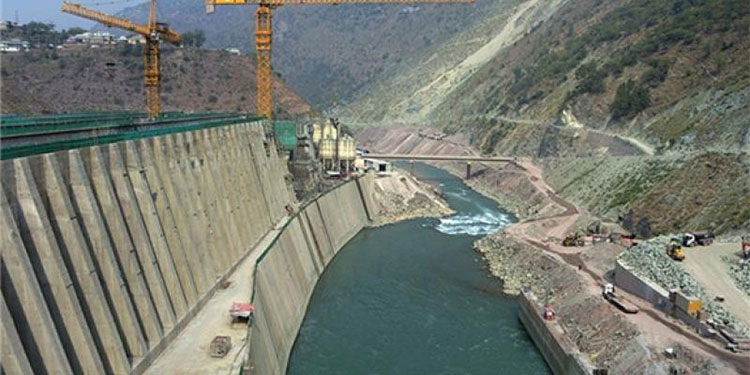Generation

Africa’s first gold-certified hydropower project

The Ngonye Falls Hydroelectric Project in Zambia provides one of the latest examples of this approach. Located on the Upper Zambezi River in the Western Province, the 180MW run-of-river facility last year became the first hydropower project in Africa to achieve Gold certification under the Hydropower Sustainability Standard (HSS).
This certification, confirmed through an independent on-site assessment and open public consultation, signals that the project has gone beyond minimum safeguards in areas such as labour and working conditions, governance and community consultation. While certification is not an endpoint, it does provide assurance that the project is being developed with international best practice in mind.
In this ESI Africa interview Anton-Louis Oliver, chairman of International Hydropower Association, talks about the 2025 World Hydropower Outlook, which contains information on Africa’s generation assets
With commercial operation targeted for 2028, Ngonye Falls is expected to deliver an average of 887 GWh of electricity annually – enough to strengthen Zambia’s power supply and contribute to regional trade through the Southern African Power Pool (SAPP).
The project, developed by Western Power Company (WPC) at an estimated cost of $715 million, also has wider implications for how large-scale infrastructure can align with Africa’s sustainable development priorities.
Why sustainability standards matter
Across Africa, hydropower is recognised as both an opportunity and a challenge. On one hand, it offers reliable renewable energy that can complement solar and wind. On the other, poorly planned or executed projects risk environmental harm or social conflict and can face difficulties attracting finance.
This is where tools like the Hydropower Sustainability Standard (HSS) come in. The HSS provides a clear framework for developers, financiers and governments to assess performance against robust criteria covering environment, social and governance issues. Achieving certification can help demonstrate credibility to investors while also building trust with communities and regulators.
For Ngonye Falls, the assessment highlighted three areas that hold lessons for future projects:
- maximising local employment,
- strengthening governance in a volatile context, and
- building trust through dialogue
Maximising local potential: labour and working conditions

An Environmental, Social Impact Assessment (ESIA) meeting with locals. Source: IHA
Employment is one of the most visible benefits communities expect from large-scale projects. At Ngonye Falls, this was an area of strong performance, with the project meeting all HSS advanced requirements on labour and working conditions.
The project is expected to create more than 3,000 jobs during the peak of its 24-month construction period, and around 60–100 permanent roles once operational. However, because the Western Province is one of Zambia’s poorest and least industrialised regions, the pool of skilled labour is limited. To address this, WPC has invested in vocational training well in advance of construction.
Since 2023, nearly 100 young adults from the local area have received training in skills such as bricklaying, mechanics, agriculture, electrical work and food production. These skills not only prepare people for employment during construction, but also provide lasting opportunities beyond the project itself.
Contractors will be required to prioritise local recruitment and procurement, while also complying with international labour standards such as IFC Performance Standard 2 and ISO 45001. The HSS assessment confirmed that policies and practices are aligned with internationally recognised labour rights, including non-discrimination, equal remuneration and fair treatment.
Strengthening integrity: governance and procurement
Governance challenges can undermine infrastructure projects anywhere, but particularly in politically volatile environments. Ngonye Falls achieved 91% of advanced requirements on governance and procurement under the HSS, reflecting a clear focus on transparency and accountability.
WPC’s shareholder base includes both private investors and InfraCo Africa, a development financier owned by several governments and the IFC. This structure has helped reinforce strong corporate governance.
A distinctive feature of the project is the Community Participation Agreement (CPA) with the Barotse Royal Establishment (BRE), the traditional authority of the region. Under this agreement, the BRE holds a 6% equity share in trust for the community, ensuring long-term financial benefits flow back to local people. These benefits are to be managed through community development trusts, creating resources that can support health, education and other local priorities.
Other safeguards include a risk register reviewed at board level, an Implementation Agreement with the Zambian government, and procurement rules that require anti-corruption safeguards such as compliance with ISO 37001. These measures together reduce risks for both financiers and affected communities.
Of interest Africa: Hydro underpowered
Building Trust: Communications and consultation

Barotse Royal Establishment (BRE) Headmen with HSS publication
Hydropower projects often face scepticism if communities feel decisions are imposed on them. Ngonye Falls has sought to avoid this by engaging stakeholders from the earliest planning stages.
Since 2012, consultations have been held in both English and the local language Lozi, supported by plain-language summaries of technical reports. A Project Liaison Committee brings together representatives of affected households, the developer and other stakeholders. A grievance mechanism, including accessible grievance boxes in local communities, has been operational since 2016.
These efforts have gone beyond one-off meetings. Dedicated community liaison staff maintain a daily presence in the field, helping ensure that information flows both ways. In one case, a study tour was organised for the Resettlement Advisory Committee to the Victoria Falls hydropower station, giving local representatives a chance to see first-hand how hydropower is operated elsewhere in Zambia.
The HSS assessment found that this approach helped secure widespread consent from community leaders and supported the signing of legally binding household compensation agreements.












